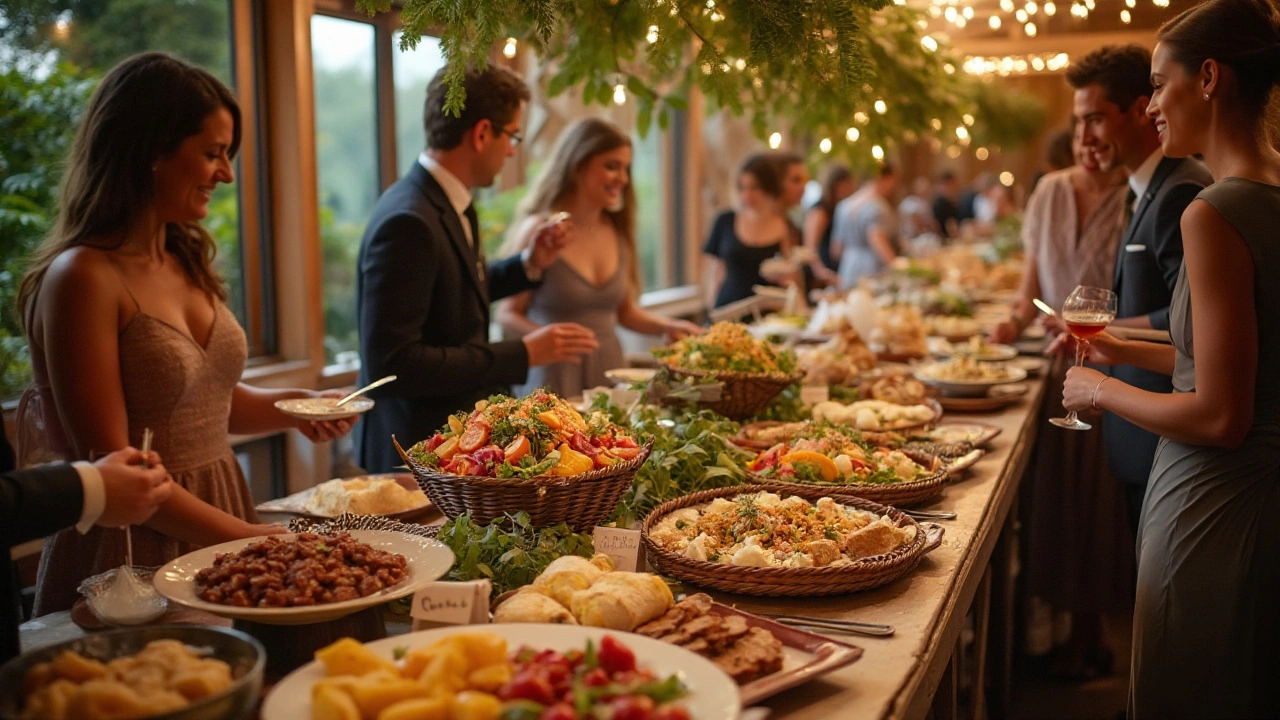Wedding Food Guide: Tasty Ideas, Budget Tips & Catering Advice
Food is the heart of any reception. A good menu keeps guests smiling and helps the day flow smoothly. Start by asking yourself what vibe you want – classic sit‑down dinner, relaxed buffet, or finger‑food stations. Write down the must‑haves, like a favourite dish or a signature cocktail, then build the rest of the menu around them. This simple list becomes your roadmap and stops you from chasing every new trend.
Choosing the Right Catering Style
Buffets let guests pick what they like and are great for larger crowds. They also cut down on staff costs because you need fewer servers. If you prefer a more formal feel, a plated dinner gives a polished look and lets you control portions. For outdoor or garden weddings, consider food trucks or pop‑up stalls – they add a fun vibe and often cost less than traditional caterers. Whatever you pick, taste‑test at least two dishes to make sure the quality matches your expectations.
Smart Budget Hacks for Wedding Food
Set a clear food budget early and stick to it. A good rule of thumb is 10‑12% of your total wedding spend. To stretch dollars, choose seasonal produce and local ingredients – they’re fresher and cheaper. Swap pricey proteins like filet mignon for chicken thighs or pork shoulder, which can be just as tasty when cooked right. Adding a self‑serve dessert table with cupcakes, cookies, or a simple cake slice can save on a fancy pastry chef without losing wow factor.
Don’t forget dietary needs. Offering a vegetarian, gluten‑free, and nut‑free option shows you care and avoids awkward moments. Keep the menu short – three courses or a simple two‑course spread reduces waste and keeps costs down. Ask your caterer for a per‑head price and negotiate extras like champagne toast or late‑night snacks before signing a contract.
Timing matters, too. Serve the main course before speeches so guests stay focused, and plan a light bite for the after‑party if you expect dancing to go late. This avoids a heavy stomach and keeps the energy up. A well‑timed food schedule also helps your caterer stay on track and prevents costly overtime.
Finally, read reviews and ask for references. A caterer with solid feedback will deliver on time and keep leftovers minimal. Trust your gut, sample the food, and enjoy the planning process – your wedding food should be a highlight, not a headache.
The Ultimate Guide to Choosing a Wedding Buffet
Deciding on a buffet for your wedding requires considering various factors such as budget, guest preferences, and venue logistics. A buffet can offer a wide variety of food options, allowing guests with diverse tastes and dietary needs to find something they enjoy. However, it's important to weigh the benefits against potential drawbacks, like the need for larger serving spaces and the possibility of food wastage. Tips for planning a successful wedding buffet include careful menu selection, efficient layout planning, and having a sufficient number of staff to maintain order.
Read more